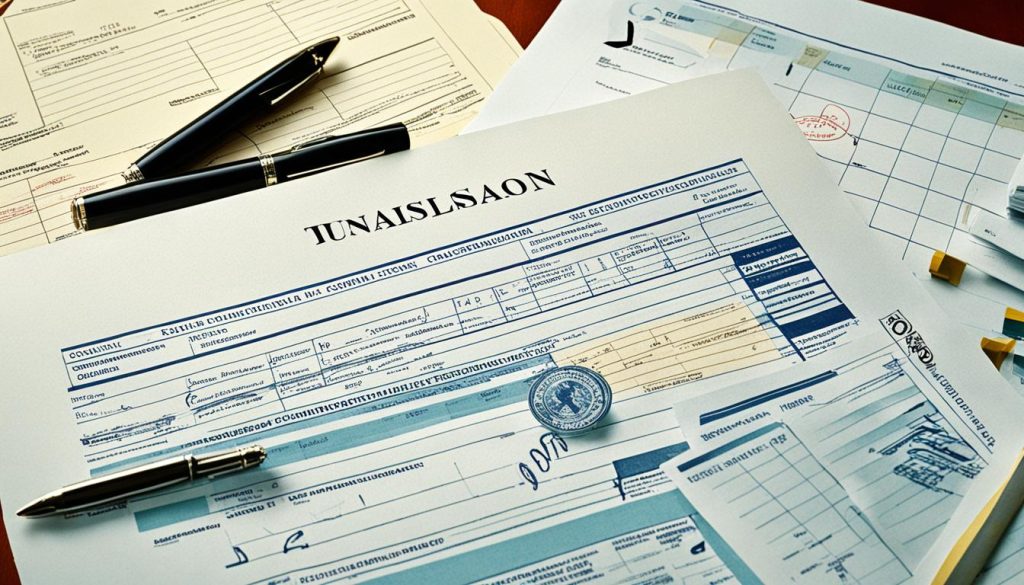Starting non-profit organisations in Spain is a step-by-step process. It’s aimed at building groups for social, educational, or environmental good. Figuring out how to register an NGO and understanding the non-profit laws can seem tough. But, we’ll make it easier for you. This guide lays out the key steps, legal bits, and paperwork you need to form non-profit entities in Spain.
Key Takeaways
- Understand the differences between non-profit associations and foundations.
- Familiarise yourself with the legal framework and legislation in Spain.
- Prepare essential documentation for NGO registration.
- Acknowledge the role of the Protectorate in foundation registration.
- Learn about post-registration obligations and compliance.
Introduction to Non-profits in Spain
Non-profit organisations in Spain support community engagement and better the quality of life. They deal with a variety of social challenges, such as education, health, and environmental care. These groups aim to maintain and share the country’s cultural heritage.
These organisations strive to meet the public’s needs without aiming for profit. The sector includes charities, foundations, and associations. Each one plays a unique role in improving society’s welfare.
Non-profits are key in bringing resources and volunteers together to create positive change. They work alongside government and businesses to strengthen their efforts. This teamwork enables people to contribute to community growth and speak up for causes they believe in.
Non-profits fill crucial needs that neither the government nor businesses cover. They help people who lack access to basic services. By providing things like food banks and educational events, they make a significant difference.
Ultimately, Spain’s non-profit scene is dedicated to serving the community. As we explore their legal frameworks and registration, their vital role in building unity becomes clearer. Non-profits are essential for a compassionate and inclusive society.
Understanding Legal Structures: Associations vs Foundations

In Spain, non-profit incorporations come in two main types: associations and foundations. It’s key to grasp the differences between them. Both are governed by Spanish non-profit laws. Knowing their unique features is vital.
What is a Non-profit Association?
Non-profit associations in Spain are groups aiming for a shared purpose. They get funds from member fees and donations. Such associations are led by an elected board, ensuring decisions are made together.
What is a Non-profit Foundation?
Foundations contrast with associations as they’re often started by one person or a company. They handle funds and assets for the public good. A board of trustees manages these, focusing on the foundation’s goals and its finances.
Key Differences Between Associations and Foundations
It’s crucial to know the differences when choosing your non-profit structure:
- Legal framework: Associations are member-based and democratic. Foundations are run by trustees.
- Funding sources: Members and volunteers fund associations. Foundations use assets and endowments.
- Purpose and flexibility: Associations have broader goals. Foundations focus on specific charitable aims.
Understanding these distinctions helps to pick the right structure. This ensures you meet your goals within Spanish non-profit laws.
Pre-requirements for Starting a Non-profit
Starting a non-profit in Spain requires meeting several pre-requirements. It’s important to know the Spanish charitable laws. These laws are key for your organisation. In this section, we cover the basic legal steps and paperwork needed to start.
Legal Framework and Legislation
In Spain, the process for creating a non-profit is detailed. The Foundation Act 50/2002 is essential. It explains how to set up and run non-profit foundations. Also, you must consider regional laws. Knowing both national and regional laws ensures your non-profit follows the rules.
- The Foundation Act 50/2002
- Regional laws specific to the autonomous community
- Statute of Autonomy of the region
Initial Steps and Documentation
Gathering the right documents is the first step. This means writing the initial bylaws, making a business plan, and getting ID documents for founders. Here are the key documents you’ll need early on:
- Proposal of bylaws
- Founders’ identification documents
- Initial business plan
- Proof of financial resources
Following Spanish charitable laws and preparing your documents sets your non-profit up for success. Each piece of paperwork is critical for registering. They help you meet Spanish legal and regional rules.
Steps to Register a Non-profit Association in Spain

Registering a non-profit in Spain takes a few key steps. Each phase is crucial for a smooth journey. By understanding them, you set up your non-profit for success.
Formation Minutes
The registration journey begins with the formation minutes. These minutes are from the first meeting of founders. They decide to create the association here.
It lists essential information. This includes the association’s name, its aims, and the board members’ names and roles. Also, it notes other important decisions. This document is key for the next steps.
Articles of Association
Then, you craft the articles of association. They are the rules that guide the organisation. These articles cover the association’s goals, members’ rights and duties, and governance. They also explain how decisions are made and meetings are held.
The articles must fit the Spanish Registry of Associations’ rules. This ensures your nonprofit meets legal standards.
Registering with the Registry of Associations
With your formation minutes and articles ready, the next move is to register. This is done at the Spanish Registry of Associations. You must submit all paperwork, alongside any necessary forms and fees.
The registry checks if your documents follow the law and regulations. Once they approve, your non-profit is official. It can now legally operate in Spain.
Steps to Register a Non-profit Foundation in Spain
Registering a non-profit foundation in Spain includes some key steps. We’ve put together a clear guide to help you through the process.
-
Start by kicking off the non-profit initiation stage. This step requires you to choose your foundation’s aims and get some important documents ready. You will need statutes and a founding deed that explain your foundation’s mission, its governance, and how it will run.
-
Then, make sure you’ve got the necessary initial endowment. Foundations in Spain need to show they have enough funds or resources to start their activities. This is a crucial step for registering your foundation.
-
Hand in all required documents to the Spanish Protectorate. This government body checks foundations in Spain. They review your documents to make sure they follow the laws and are good for the public.
-
After the Spanish Protectorate approves your paperwork, move to the official registration. You do this by submitting your documents to the National Register of Foundations. This is when your foundation becomes officially recognised.
The Spanish Protectorate plays a key role in this whole procedure. It not only checks your initial documents but also keeps an eye on your foundation to ensure it follows the law. Following these steps carefully will make registering your foundation straightforward and systematic.
Essential Documentation for Foundations

Creating a non-profit foundation in Spain means you need to focus on various documents. You also need to follow Spanish legal requirements. These documents are key for starting a foundation the right way. They make sure you’re doing things legally and help you get the money you need to start.
Founding Document
The founding document is very important for starting your foundation. It includes your goals, beliefs, and plans, setting the stage for everything you do later. It’s crucial to write this document carefully. It lays out what your foundation aims to do and how it plans to do it.
Will or Notary Deed
If you’re starting your foundation through a will or notary deed, you’ll need legal help. The document must clearly state your goal to start a foundation. It should also say how much money you’re starting with. This makes sure your foundation is set up legally and clearly from the start.
Financial Requirements and Initial Endowment
One of the legal requirements in Spain is about money. Foundations need to have a certain amount of money to start. This isn’t just a rule for the sake of it. It proves your foundation can really do what it plans to and help others as it says it will.
Role of the Protectorate in Foundation Registration
The Spanish Protectorate plays a crucial role in the registration of foundations. It ensures they meet goals and financial needs. Their main job is to oversee a foundation’s legal and functional operations.
The Protectorate checks foundation rules, financials, and plans thoroughly. This is to make sure the foundation’s aims fit its mission. It also checks if the foundation has enough money for its projects.















